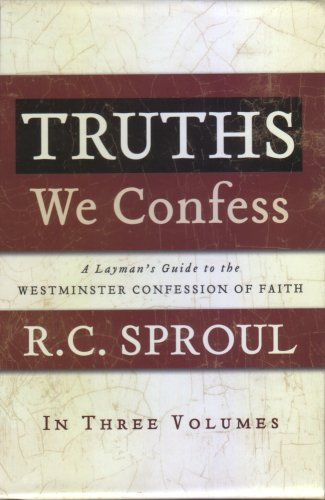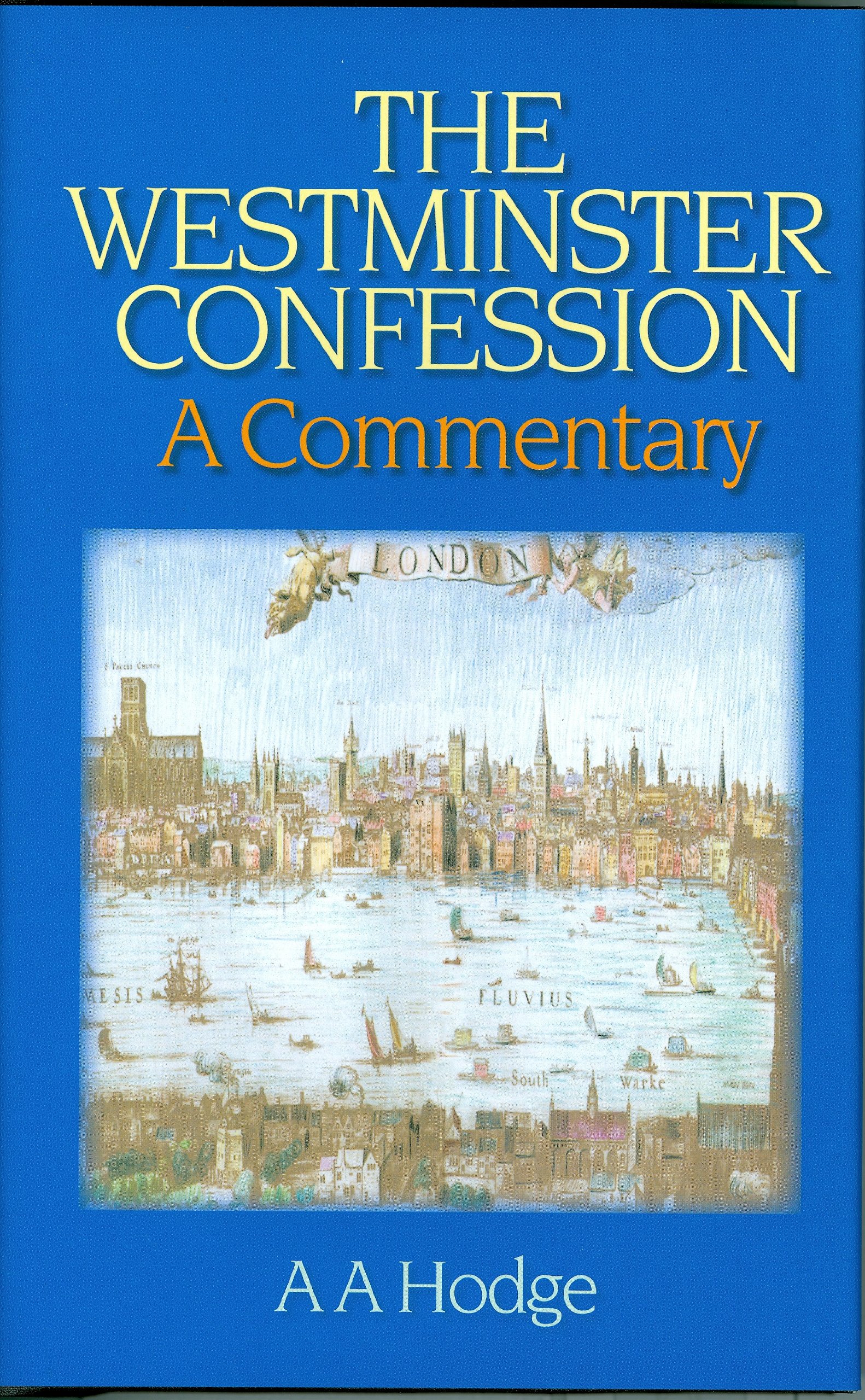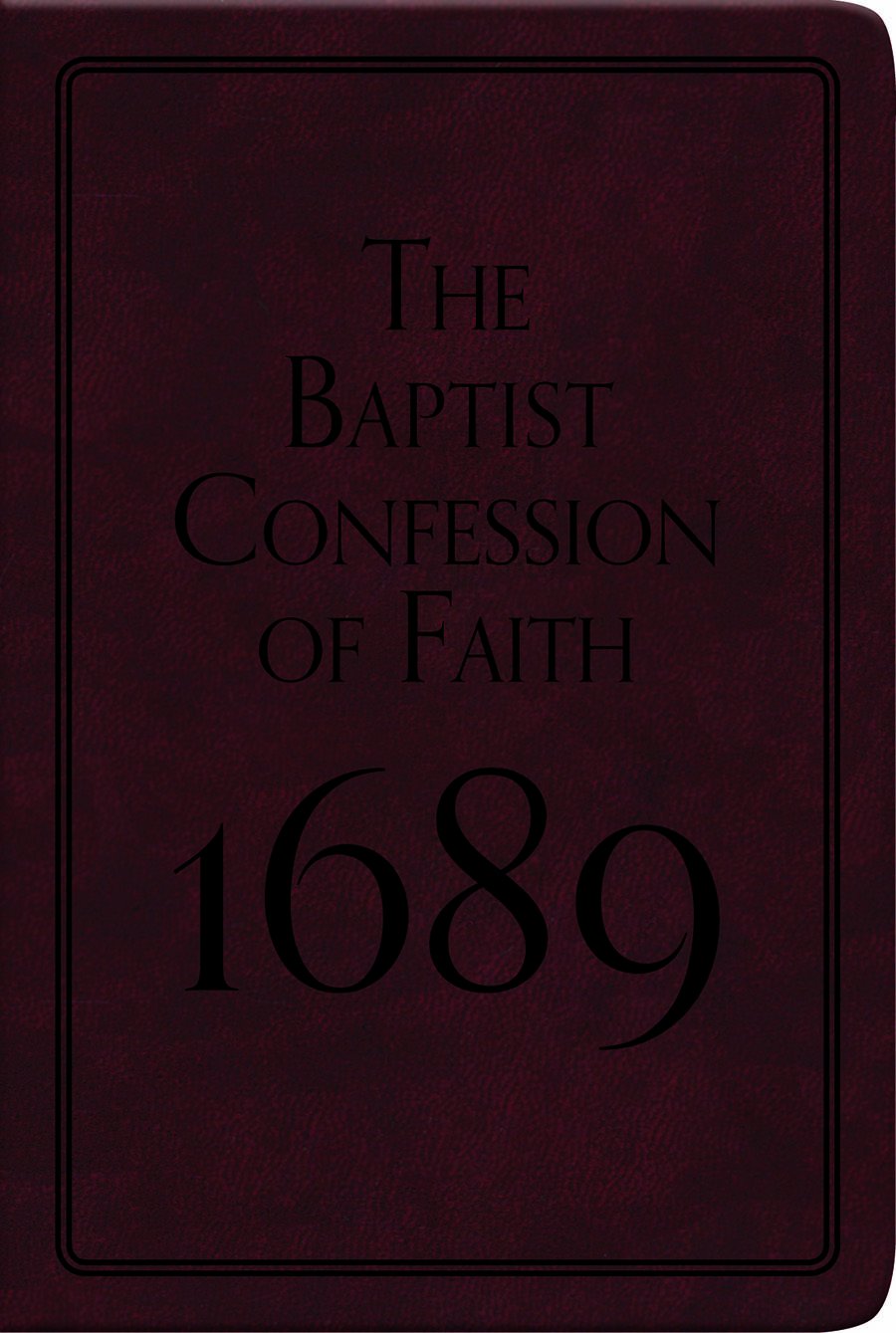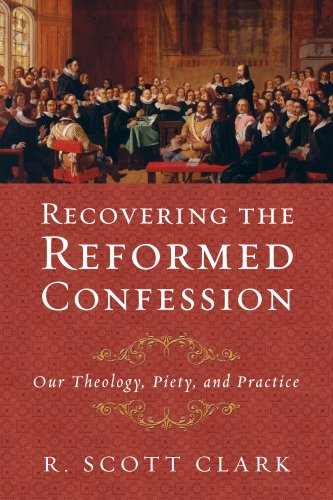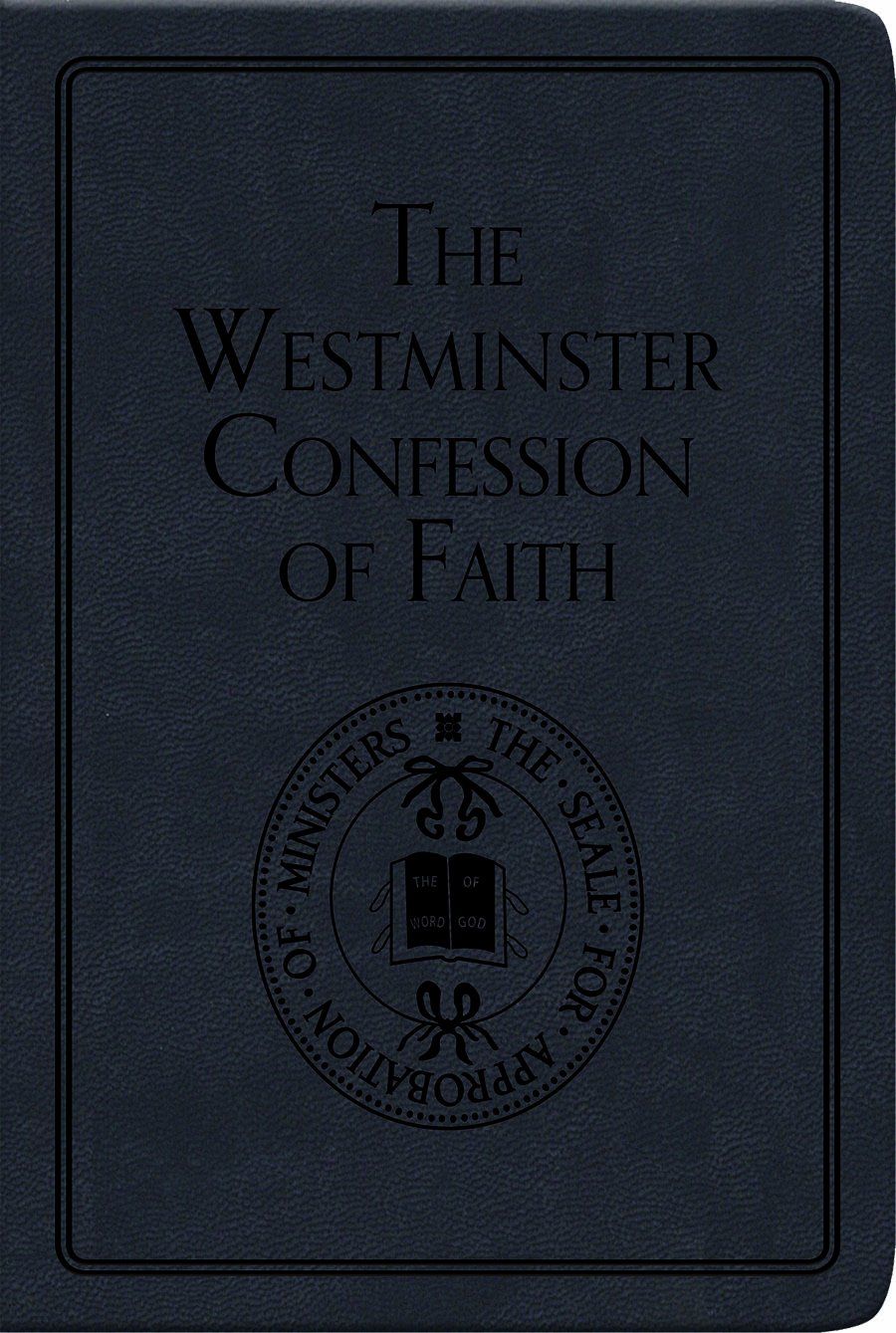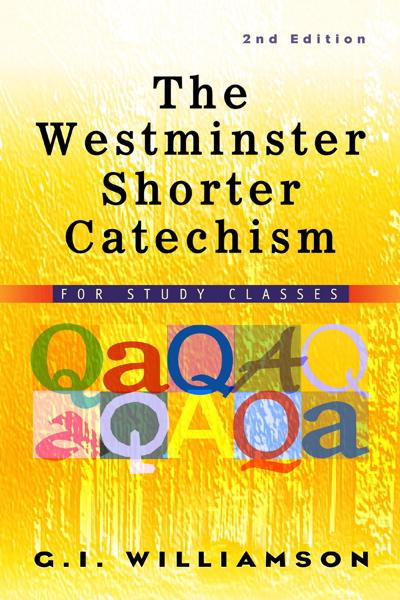It should be conceded, without fear of intelligent contradiction, that the Westminster Confession of Faith, Larger and Shorter Catechisms are the finest creedal formulations of the Christian Faith that the church of Christ has yet produced. This is not to deny that in certain particulars some other creeds may surpass these Westminster standards, nor does it mean that these standards have attained such a degree of perfection that they could not possibly be improved. But it does mean that they are the most perfect creedal exhibitions that we possess of the truth revealed in Holy Scripture. Many people are familiar with the Confession and Catechisms and yet know very little regarding the history of the Assembly that produced these documents.
One of the most important Parliaments that ever existed in England was what is known as the Long Parliament. It continued from November 1640, until it was dissolved by Oliver Cromwell in April 1653. It was this Parliament that was responsible for the calling of the Westminster Assembly of Divines.
Shortly after the Long Parliament began its work, the House of Lords appointed a committee consisting of ten bishops and twenty lay peers to take into consideration all innovations in the church concerning religion. In the autumn and winter of 1641 there was prepared what is known as the Grand Remonstrance of the House of Commons. In this remonstrance the desire was expressed that there should be ‘a general Synod of the most grave, pious, learned and judicious divines of this island, assisted by some from foreign parts professing the same religion with us, to consider all things necessary for the peace and good government of the Church.’
In 1642 a declaration of the Parliament of England was sent to the General Assembly of the Church of Scotland. This declaration contained a plea for the prevention of civil war. The answer of the General Assembly of the Church of Scotland deplored the tardiness with which the reformation of religion progressed, and contended that religion is not only the means of the service of God and the saving of souls but also ‘the base and foundation of kingdomes and estates’. It also reiterated the plea ‘that in all his Majestie’s dominions there might be one Confession of Faith, one Directory of Worship, one publick Catechisme, and one form of Kirk Government’.
On April 19, 1642, the House of Commons ordered that the names of divines fit to be consulted with be presented to the House. In less than a week this list was completed. It consisted of two divines from each county in England, two from each university, two from the Channel Islands, one from each county in Wales, and four from the city of London.
On May 9th of this year the bill for the calling of an assembly of divines was brought in to the House of Commons. The House of Lords slightly amended the bill and fourteen names were added to the list of divines. By June 1st, the bill passed both Houses of Parliament. But the King’s assent was withheld. Two other bills met with the same fate. Both Houses then resorted to the method of Ordinance by their own authority. By June 12, 1643, this Ordinance for the calling of an assembly passed both Houses. As so much interest and importance attach to this Ordinance, part of it should be quoted here. It reads thus:
‘Whereas, amongst the infinite blessings of Almighty God upon this nation, none is or can be more dear unto us than the purity of our religion; and for that, as yet, many things remain in the Liturgy, Discipline, and Government of the Church, which do necessarily require a further and more perfect reformation than as yet hath been attained; and whereas it hath been declared and resolved by the Lords and Commons assembled in Parliament, that the present Church-government by archbishops, bishops, their chancellors, commissaries, deans, dean and chapters, archdeacons, and other ecclesiastical officers depending upon the hierarchy, is evil, and justly offensive and burdensome to the kingdom, a great impediment to reformation and growth of religion, and very prejudicial to the state and government of this kingdom; and that therefore they are resolved that the same shall be taken away, and that such a government shall be settled in the Church as may be most agreeable to God’s holy word, and most apt to procure and preserve the peace of the Church at home, and nearer agreement with the Church of Scotland, and other Reformed Churches abroad; and, for the better effecting hereof, and for the vindicating and clearing of the doctrine of the Church of England from all false calumnies and aspersions, it is thought fit and necessary to call an Assembly of learned, godly, and judicious Divines, who, together with some members of both the Houses of Parliament, are to consult and advise of such matters and things, touching the premises, as shall be proposed unto them by both or either of the Houses of Parliament, and to give their advice and counsel therein to both or either of the said Houses, when, and as often as they shall be thereunto required.’
Chapter XXIII of the Westminster Confession of Faith deals with ‘the Civil Magistrate’. Section III of this chapter reads as follows: ‘The civil magistrate may not assume to himself the administration of the Word and sacraments, or the power of the keys of the kingdom of heaven: yet he hath authority, and it is his duty, to take order, that unity and peace be preserved in the Church, that the truth of God be kept pure and entire; that all blasphemies and heresies be suppressed; all corruptions and abuses in worship and discipline prevented or reformed; and all the ordinances of God duly settled, administered, and observed. For the better effecting whereof, he hath power to call synods, to be present at them, and to provide that whatsoever is transacted in them be according to the mind of God.’ The last sentence of this section is the defense, on the part of the Westminster Assembly, of that Ordinance of the English Parliament of 1643 in accordance with which the Assembly convened on July 1st of that year. The Westminster Assembly was the creature of the Long Parliament.
The Westminster divines did not, of course, regard the authority of Parliament or of any civil magistrate as essential to the calling of an assembly such as the Westminster Assembly was. In Chapter XXXI, which deals with ‘Synods and Councils’, the divines also said: ‘As magistrates may lawfully call a synod of ministers, and other fit persons, to consult and advise with, about matters of religion; so, if magistrates be open enemies to the Church, the ministers of Christ of themselves, by virtue of their office, or they, with other fit persons, upon delegation from their Churches, may meet together in such assemblies’ (Section II). Nevertheless the Westminster Assembly was actually convened by Ordinance of Parliament.
The Assembly consisted of some one hundred and fifty members. Thirty were members of Parliament, the remainder divines, representing the chief parties of English Protestants except that of Archbishop Laud.
The Assembly was called to meet on July 1, 1643. Two days before the meeting a royal proclamation was issued prohibiting the meeting. Notwithstanding this royal interdict, sixty-nine of those appointed met. They convened in Westminster Abbey for divine service, and both Houses of Parliament adjourned for the purpose of attending the service of worship. Dr. Twisse, the prolocutor of the Assembly, preached. After divine service the members of the Assembly met in the Chapel of Henry VII. The Assembly adjourned until July 6th.
Certain instructions for the conduct of the Assembly were framed by both Houses of Parliament in consultation with certain of the divines. As given by John Lightfoot, a member of the Assembly, these read as follows:
- That two Assessors be joined to the Prolocutor, to supply his place in case of absence or infirmity.
- That Scribes be appointed, to set down all proceedings, and those to be Divines, who are not of the Assembly, viz. Mr. Henry Robens and Mr. Adoniram Byfield.
- Every member, at his first entry into the Assembly, shall make serious and solemn protestation, not to maintain any thing but what he believes to be truth in sincerity, when discovered unto him.
- No resolution to be given upon any question the same day, wherein it is first propounded.
- What any man undertakes to prove as necessary, he shall make good out of Scripture.
- No man to proceed in any dispute, after the Prolocutor has enjoined him silence, unless the Assembly desire he may go on.
- No man to be denied to enter his dissent from the Assembly, and his reasons for it, in any point, after it hath been first debated in the Assembly, and thence (if the dissenting party desire it) to be sent to the Houses of Parliament by the Assembly, not by any particular man or men, in a private way, when either House shall require.
- All things agreed on and prepared for the Parliament, to be openly read and allowed in the Assembly, and then offered as the judgment of the Assembly, if the major part assent. Provided that the opinion of any persons dissenting, and the reasons urged for it, be annexed thereunto, if the dissenters require it, together with the solutions, if any were given to the Assembly, to these reasons.
When the Assembly met on July 8th, the following protestation was taken by every member, Lords and Commons, as well as divines: ‘I, A.B. do seriously and solemnly protest, in the presence of Almighty God, that in this Assembly, whereof I am a member, I will not maintain any thing in matters of doctrine, but what I think in my conscience to be truth; or in point of discipline, but what I shall conceive to conduce most to the glory of God, and the good and peace of his church.’ This protestation, it should be noted, is of the nature of a solemn oath. It would be well for all to be animated by the spirit that evoked its composition and by the determination that the taking of it expresses.
In accordance with the provisions of the Ordinance quoted above, the Assembly was largely occupied for the first three months with the revision of the Thirty-Nine Articles of the Church of England.
One of the most interesting accounts we possess of the actual work of the Assembly is given us by Robert Baillie, one of the Scottish commissioners to the Assembly. It gives us, from the pen of one admirably fitted to write, a sample of actual procedure in the sessions of the Assembly. Under date of December 7, 1643, Baillie writes:
‘On Monday morning we sent to both Houses of Parliament for a warrant for our sitting in the Assemblie. This was readilie granted, and by Mr. Hendersone presented to the Proloqutor; who sent out three of their number to convoy us to the Assemblie. Here no mortal man may enter to see or hear, let be to sitt, without ane order in wryte from both Houses of Parliament. When we were brought in, Dr. Twisse had ane long harangue for our welcome, after so long and hazardous a voyage by sea and land, in so unseasonable a tyme of the year. When he had ended, we satt doun in these places which since we have keeped. The like of that Assemblie I did never see, and, as we hear say, the like was never in England, nor any where is shortlie lyke to be. They did sit in Henry the 7th’s Chappell, in the place of the Convocation; but since the weather grew cold, they did go to Jerusalem chamber, a fair roome in the Abbey of Westminster, about the bounds of the College fore-hall, but wyder. At the one end nearest the doore, and both sydes are stages of seats as in the new Assemblie-House at Edinburgh, but not so high; for there will be roome but for five or six score. At the upmost end there is a chair set on ane frame, a foot from the earth, for the Mr. Proloqutor Dr. Twisse. Before it on the ground stands two chairs for the two Mr. Assessors, Dr. Burgess and Mr. Whyte. Before these two chairs, through the length of the roome, stands a table, at which sitts the two scribes, Mr. Byfield and Mr. Roborough. The house is all well hung, and hes a good fyre, which is some dainties at London. Foranent the table, upon the Proloqutor’s right hand, there are three or four rankes of formes. On the lowest we five doe sit. Upon the other, at our backs, the members of Parliament deputed to the Assemblie. On the formes foranent us, on the Proloqutor’s left hand, going from the upper end of the house to the chimney, and at the other end of the house, and backsyde of the table, till it come about to our seats, are four or five stages of fourmes, whereupon their divines sitts as they please; albeit commonlie they keep the same place. From the chimney to the door there is no seats, but a void for passage. The Lords of the Parliament uses to sit on chaires, in the void, about the fire. We meet every day of the week, but Saturday. We sitt commonlie from nine to one or two afternoon. The Proloqutor at the beginning and end hes a short prayer. The man, as the world knows, is very learned in the questions he has studied, and very good, beloved of all and highlie esteemed; but merelie bookish, and not much, as it seems, acquaint with conceived prayer, [and] among the unfittest of all the company for any action; so after the prayer he sitts mute. It was the canny convoyance of these who guides most matters for their own interest to plant such a man of purpose in the chaire. The one assessour, our good friend, Dr. Whyte, hes keeped in of the gout since our coming; the other, Dr. Burgess, a very active and sharpe man, supplies, so farr as is decent, the Proloqutor’s place. Ordinarlie there will be present above three-score of their divines. These are divided in three Committees; in one whereof every man is a member. No man is excluded who pleases to come to any of the three. Every Committee, as the Parliament gives order in wryte to take any purpose to consideration, takes a portion, and in their afternoon meeting prepares matters for the Assemblie, setts doune their minde in distinct propositions, backs their propositions with texts of Scripture. After the prayer, Mr. Byfield the scribe, reads the proposition and Scriptures, whereupon the Assemblie debates in a most grave and orderlie way. No man is called up to speak; bot who stands up of his own accord, he speaks so long as he will without interruption. If two or three stand up at once, then the divines confusedlie calls on his name whom they desyre to hear first: On whom the loudest and manifest voices calls, he speakes. No man speaks to any bot to the Proloqutor. They harangue long and very learnedlie. They studie the questions well before hand, and prepares their speeches; but withall the men are exceeding prompt, and well spoken. I doe marvell at the very accurate and extemporall replyes that many of them usuallie doe make. When, upon every proposition by itself, and on everie text of Scripture that is brought to confirme it, every man who will hes said his whole minde, and the replyes, and duplies, and triplies, are heard; then the most part calls, To the question. Byfield the scribe rises from the table, and comes to the Proloqutor’s chair, who, from the scribe’s book, reads the proposition, and says, as many as are in opinion that the question is well stated in the proposition, let them say I; when I is heard, he says, as many as think otherwise, say No. If the difference of I’s and No’s be cleare, as usuallie it is, then the question is ordered by the scribes, and they go on to debate the first Scripture alleadged for proof of the proposition. If the sound of I and No be near equall, then sayes the Proloqutor, as many as say I, stand up; while they stand, the scribe and others number them in their minde; when they sitt down, the No’s are bidden stand, and they likewise are numbered. This way is clear enough, and saves a great deal of time, which we spend in reading our catalogue. When a question is once ordered, there is no more debate of that matter; but if a man will vaige, he is quicklie taken up by Mr. Assessor, or many others, confusedlie crying, Speak to order, to order. No man contradicts another expresslie by name, bot most discreetlie speaks to the Proloqutor, and at most holds on the generall, The Reverend brother, who latelie or last spoke, on this hand, on that syde, above, or below. I thought meet once for all to give yow a taste of the outward form of their Assemblie. They follow the way of their Parliament. Much of their way is good, and worthie of our imitation: only their longsomenesse is wofull at this time, when their Church and Kingdome lyes under a most lamentable anarchy and confusion. They see the hurt of their being to establish a new Plattforme of worship and discipline to their Nation for all time to come, they think they cannot be answerable, if solidlie and at leisure, they doe not examine every point thereof.’
From The Presbyterian Guardian, volumes 11 and 12 (1942-1943)
